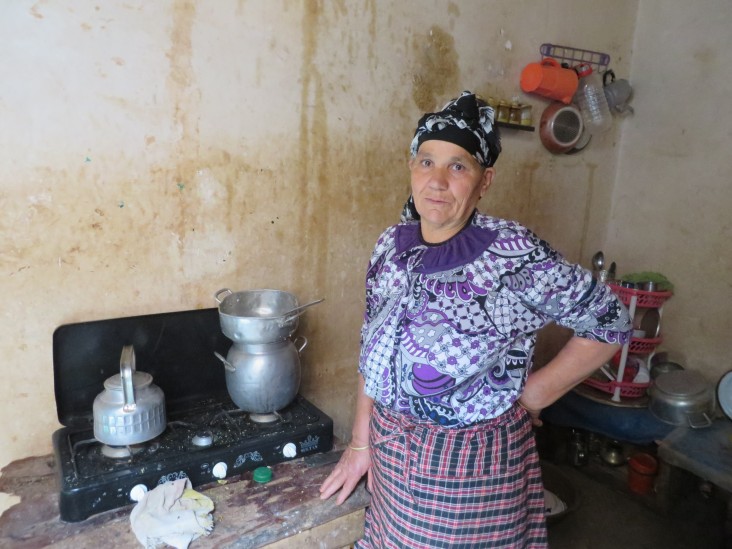
Evaptainers is a Boston-based company that has developed a portable, “zero-energy” evaporative cooling system for low-income families in remote areas that are not connected to the electric grid. In 2016, Evaptainers was awarded a prestigious award through USAID’s Development Innovation Ventures (DIV) program, which provides funding to breakthrough ideas to address global development challenges. Through this grant, Evaptainers is commercializing their product and conducting field tests in rural areas in the High Atlas Mountains of Morocco.
On Friday, August 4th, team members from USAID Washington and USAID Morocco traveled to Anmiter, a rural mountain village in the High Atlas Mountains, which has been selected as a pilot site for EV8, the Evaptainers beta-version of an electricity-free, mobile refrigeration technology system. During the visit, the USAID team met with two families who will be participating in the upcoming Evaptainers pilot. Without some type of cooling device, families watch costly produce go to waste every week, and they are hoping that the EV8 will help them keep their food on the table longer and out of the trash.
Thanks to financial support from the USAID’s Global Development Lab, Evaptainers will distribute EV8 evaporative cooling prototypes to approximately 150 families in the Anmiter region. In the months that follow, the team will monitor and evaluate the product’s use, performance, and whether it is helping to meet the needs of these households. The team identified the mountainous locations according to the following criteria: low access or use of electricity, high dependence on agriculture, and the relative level of poverty. Evaptainers also plans to sell an additional 150 EV8s in completely different villages to understand price points; to improve target markets; to test commercial viability; and to learn more about distribution and use. The EV8 is expected to cost somewhere between $25-$35 in Morocco, which is a relatively low investment when compared to the recurring monthly costs of wasted produce.
Marketing in rural Morocco, however, has proven to be a challenge for the team: similar products do not sell easily at the souk (local markets). This is pushing Evaptainers to seek an alternative plan. Their current estimates show that they will need to sell 40,000 EV8 units to break even, which is indeed a challenge. The good news is that this breakthrough product has a social component that will lead to improved nutritional intake and increased family savings, if successful. With admirable developmental and corporate social responsibility goals, USAID promotes ideas like Evaptainers, and then we partner with them to help turn pilot products into commercially-viable ones.







Comment
Make a general inquiry or suggest an improvement.